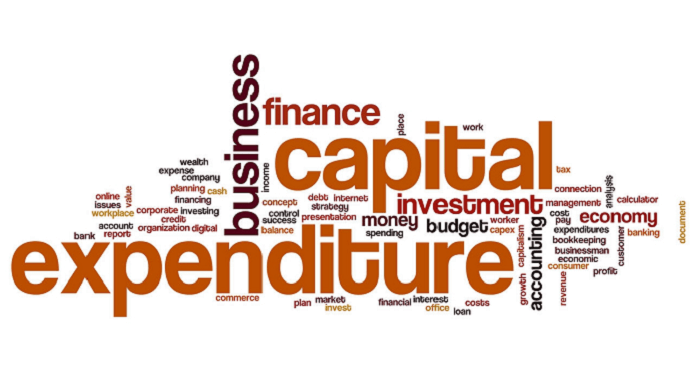Difference between Capital Expenditure and Revenue ExpenditureCapital expenditures and revenue expenditures are the two main forms of expenses. To accurately account for these expenses, business entities must be able to pinpoint the costs associated with these categories. Understanding their fundamentals and points of difference will also help you manage them more successfully, which will enable sustainable earnings. What is Capital Expenditure?
Those funds are known as capital expenditures, or CAPEX that are used to purchase, maintain, or upgrade long-term assets. Such costs are typically infrequent and are incurred to increase a company's long-term proficiency. Purchasing tangible assets like plants, plots, equipment, furniture, and fixtures as well as intangible assets like patents, licences, and trademarks are some effective capital expenses. In general, CAPEX affects a company's short- and long-term financial position and also contributes to the growth of its overall operations over time. The CAPEX formula is as follows: Capital expenditure = Net increase in PP & E + Depreciation Expense The same is acknowledged in a company's balance sheet, directly under the heading of "fixed assets," as well as in its cash flow statement. Here, it is important to remember that capital expenses are capitalized. Depreciation is additionally added to CAPEX each year and is one of the key distinctions between capital expenditure and revenue expenditure. Capital Expenditure TypesThe following types of capital expenditures are used to classify them:
CAPEX is known by the following headings in terms of outlay:
Taking this into consideration, let's move on to learn the fundamentals of revenue expenses in order to better comprehend the difference between capital and revenue expenditures. What is a Revenue Expenditure?
The costs a business incurs while operating are referred to as revenue expenditures or operating expenses (OPEX). It can be characterized as the total costs incurred by businesses during the course of their production activities. In most cases, these expenses do not lead to the creation of assets, and the advantages of OPEX are only valid for one accounting year. They typically are not in charge of creating or enhancing a company's ability to make money. Regardless, they are essential for generating revenue within a specific accounting period and play a significant part in managing operational activities and assets more effectively. Examples of some of the numerous revenue expenditures include rent, wages, commissions, salaries, and freight costs. Importantly, it is advantageous to categorize costs as OPEX depending on elements such as the type of business operation, the purpose of a venture, the frequency of operations, etc. Revenue and expenditures for a given accounting period are shown in a company's income statement in terms of accounting treatment. The same, though, is not indicated in the company's balance sheet. Due to their recurrence, such expenses might also qualify for tax deductions during a specific accounting period. It should also be known that OPEX costs are not capitalized and do not affect by depreciation. Revenue Expenditure TypesIn general, there are two categories into which revenue expenditures can be divided:
The majority of these costs are incurred during the production process. Direct wages, freight charges, import duties, commissions, rent, legal fees, and electricity costs are some of the most typical direct expenses.
These costs are related to the marketing and supply of finished goods and services. They cover sales commissions, maintenance, interest, commission, depreciation, rent, and taxes, among other things. These expenses might also include the money used to manage ongoing administrative costs. Difference between Capital Expenditure and Revenue ExpenditureLet us use the above information to determine how closely or distantly related capital expenses and revenue expenses are to one another.
ConclusionA company generally uses capital expenditures for long-term investments. For example, it may buy land to expand its business to new areas, and buildings to improve manufacturing and warehouse including technology to grow its business. Therefore, if any property provides long-term benefits to a company, the purchase of this property by the company will be recorded as a capital expenditure. On the other hand, revenue expenditures are for a short duration during the current period. They include ongoing operational costs for running a business such as rent, business travel, salaries, etc.
Next TopicDifference between
|
 For Videos Join Our Youtube Channel: Join Now
For Videos Join Our Youtube Channel: Join Now
Feedback
- Send your Feedback to [email protected]
Help Others, Please Share










